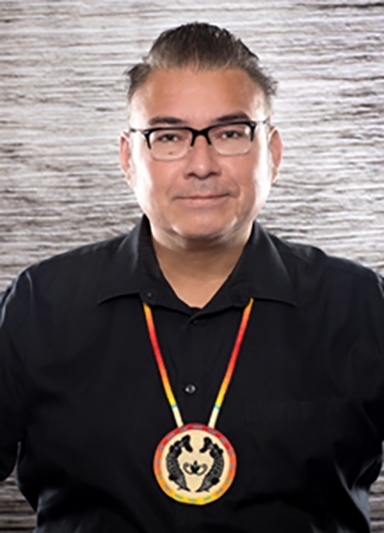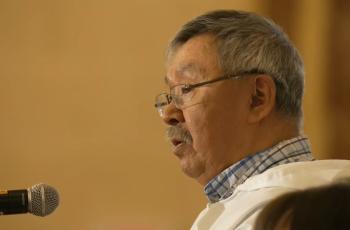Image Caption
Local Journalism Initiative Reporter
Windspeaker.com
During a summit on Indigenous identity fraud May 15, a declaration was unanimously adopted by the northern Labrador Inuit, Ontario First Nations and Red River Métis denouncing the Indigenous identity claims of the NunatuKavut Community Council.
The NunatuKavut Community Council was formerly known as the Labrador Métis Association and then the Labrador Métis Nation. The council represents a group of 6,000 people in Labrador who self-identify as Indigenous.
President of the Nunatsiavut Government of Labrador Inuit, Johannes Lampe, says Inuit stand united in the conviction the NunatuKavut is non-Indigenous.
“This identity fraud goes beyond the individual level and is resulting in the creation of so-called new Indigenous Nations in what is now known as North America,” reads the declaration. It condemns the fraudulent appropriation of First Nations, Inuit, and Red River Métis identity for personal gain, political, economic or social advantage.
These individuals and groups undermine “the struggles and experiences of legitimate First Nations, Inuit and Red River Métis peoples, which is an insult to our ancestors who suffered immeasurable hardships to preserve our ways of life,” reads the declaration.
“Nations are being written into history in Ontario where they never were on the simple basis that they may or may not have an Indigenous ancestor dating back as far as the 1600s,” said Nipissing First Nation Chief Scott McLeod. “No one here can say that they have an ancestor that's from Scotland or from Holland or from France or from England and claim rights in those countries. Why is it okay to do that in our nations?”
McLeod was referring to Day 1 of the summit when participants heard condemnation of the Métis Nation of Ontario and its six additional Métis communities in that province. There has been revealed a number of self-identifying individuals and groups across Canada asserting Indigenous identity. Issues were also raised about governments’ work that lends those groups legitimacy.
“The federal government or the provincial governments are not the gatekeepers on this,” said McLeod. “They're the ones that are opening the gates.”
“We are the gatekeepers, and we need to stand firm. We need to stand united and protect our homelands, protect our history, protect our people, and protect our nations,” he said.
The declaration calls for action to provide that protection and to revitalize Indigenous cultures, languages, and traditions. It calls for criminal law reforms to address identity fraud and “enforce authenticity.”
The federal government granted recognition to the NunatuKavut council in 2019.
“By engaging with the industry and benefiting from our natural resources, which rightfully belong to legitimate First Nations, Inuit and Red River Métis, five federal and provincial governments are diverting from our nations’ already scarce fiscal resources to individuals and groups making false claims to Indigenous identity,” reads the declaration.
The United Nations Declaration on the Rights of Indigenous Peoples reads “states shall not carry out, adopt, support or favor any policy of assimilation of Indigenous peoples or destruction of their cultures.”
With this declaration, First Nations, Inuit and the Red River Métis assert that “groups and individuals making false claims to Indigenous identity are engaging in the assimilation and erasure of legitimate” Indigenous Nations.
Identity Fraud and its Effects

The fifth session in the two-day summit focused on identity fraud and its effects on other parts of Canada.
Jacques Watso of the Abenaki Council d’Odanak in Quebec shared the history of four groups in his area who couldn’t be recognized in Canada, so they turned to the government of Vermont for status.
“And that's very frustrating as a First Nation leader in my community, to see white folks appropriating my culture, my heritage and my language and my stories and my songs.”
“They are basically erasing us by replacing us,” Watso said.
“It's the same thing across Canada. They all have the same rhetoric that ‘they were hiding’. They had the church burned down with their genealogy and birth certificates.”
“I'd like to know where that church is because there's about one million French Canadians claiming Native ancestry who say that this church burned. So that's one big church,” he said.
While making false identity claims for financial benefit, fraudulent groups are also doing spiritual and cultural harm to Indigenous communities.
“This is vile and disgusting,” Watso said. He explained that archaeology sites are being uncovered in Abenaki traditional territory but over an international border.
“These white settlers playing Indian are entrusted with the human remains of my ancestors,” he said, the ancestors of his family and of the Abenaki Nation as a whole.
The leaders called on governments, industry proponents, and academic communities to support legitimate Indigenous peoples and to stop accommodating identity thieves.
“I always say the Indian Act is not there to help us. The government is not there to help us and nobody's coming to save us,” said Watso.
“We're going to have to work all together and, like the bison in the herd, we're going to have to be united on a common front and move forward all together because this is happening everywhere and united we will be stronger,” said Watso.
To watch Day 2 of the Indigenous Identity Fraud Summit, go to YouTube at https://www.youtube.com/live/fjNek3SYTpA?si=zaLyc_fb2AS0G3DN
To watch Day 1 of the Indigenous Identity Fraud Summit, go to YouTube at https://www.youtube.com/live/i-54weuHE2Y?si=GxHmQ_-LfshMBFIh
Local Journalism Initiative Reporters are supported by a financial contribution made by the Government of Canada.

